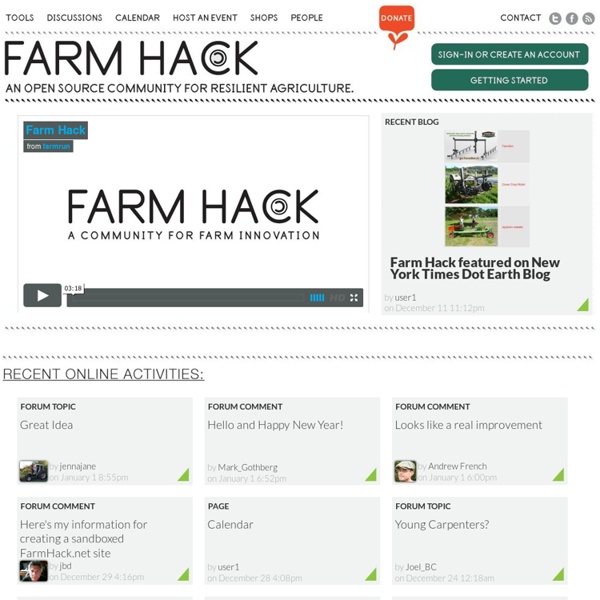



Growing Small Farms | North Carolina Cooperative Extension 7 Amazing Websites To See The Latest In Artificial Intelligence Programming Artificial Intelligence is not yet HAL from the 2001: The Space Odyssey…but we are getting awfully close. Sure enough, one day it could be as similar to the sci-fi potboilers being churned out by Hollywood. If that’s your idea of what artificial intelligence is all about, then you aren’t far off the mark. In layman’s terms, artificial intelligence is about creating intelligent machines through the use of intelligent computer programs. Most, if not all of artificial intelligence (AI) tries to mimic human behavior. The scale of ambition is different, but artificial intelligence programming is a full-fledged field in the cutting edge of science today. AiGameDev The blog and forum is devoted to artificial intelligence and game development. Kurzweil The theme of this site is how science is impacting our lives and accelerating change. TED Talks The acronym isn’t that familiar, but expand it to MIT Computer Science and Artificial Intelligence Laboratory and recognition dawns. New Scientist
Permaculture Design Certificate Course (PDC) | Permaculture Sydney Institute Book me in! Registration and full payment to confirm your place in the course or workshop must be received min 7 days before the course commences. Please click here to read the full Terms and Conditions. Students cannot join the course without paying the full fees in advance. About our Permaculture Design Certificate CourseThe Permaculture Design Certificate Course or PDC is the ultimate permaculture course experience. Covering the Permaculture Designers Manual it brings together ancient and modern wisdoms, science, the arts and many practical design principles and techniques for living a totally sustainable lifestyle. The Trainers: Permaculture Sydney Institute engages only highly experienced and professional trainers for our courses. InvestmentCourse fees including all tuition, notes, lunches, teas and dinners is exceptional value at: $1,495 PSI is committed to LETS trading, and half the course fee can be traded against LETS currency for one place in this course. Our PDC will;
5 Websites For Every Portable Application On The Web You already know that some applications offer portable or “soft” installations, but don’t you wish there was some place on the Internet where you could find any portable application? Although few, the good news is that there are some! Portable applications are incredibly useful. If you’re someone who is constantly carrying around a flash drive, you should always have a few of your favorite portable applications (or even a portable application suite) on it. I’ve found that portable applications are just as useful for a wide variety of uses — like when you’re setting up synchronized folders. I have a folder in my Dropbox dedicated to no-installation-required programs, and syncing it to any new desktop or laptop means that I immediately have several applications available at my fingertips. In this post, let me show you where you can go to find these types of portable programs. MakeUseOf’s The Best Portable Apps The applications on this page are all organized within the following categories:
Permaculture Network » Holmgren Permaculture Design for Sustainable Living The following list links to other web sites with more information about local, Australian and global Permaculture networks and related resources. Local (Central Victoria & Melbourne) Permaculture Principles Provides easy access to the permaculture ethics and design principles with clean graphics and simple explanations by permaculture graphic design professional Richard Telford. Permaculture Melbourne Network centre for permaculture groups and activities by associated local groups in Melbourne and country Victoria. Australia Felix Darren Doherty permaculture consultant and teacher from Bendigo with a track record in farm revegetation, forest and tree crop establishment and earthworks design. Cydonia Permaculture Website of Central Victorian permaculture activist Beck Lowe, convenor of the long running Central Victorian residential PDC held at Commonground, Seymour, an extraordinary community with excellent facilities and examples reflecting permaculture principles. Australia International